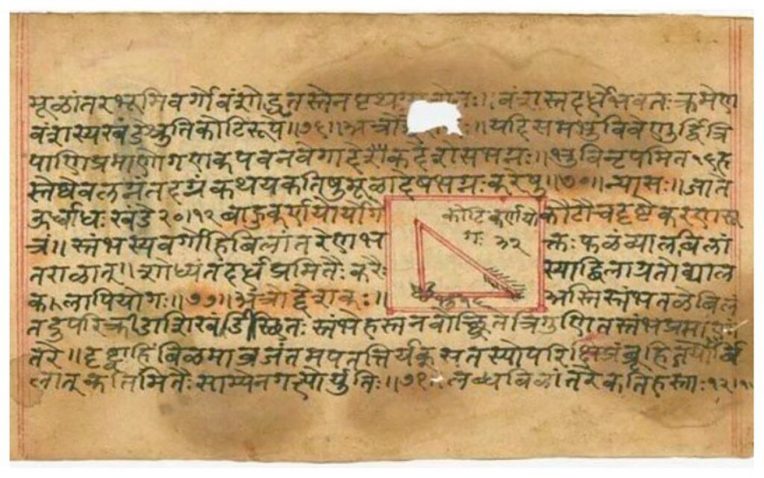From charting the stars and constructing vast temples to discerning a microbe’s path or an atom’s speed, mathematics ties humanity’s aspirations together like a gossamer web.

“To study the history of mathematics is to study what compels us as humans,” said Dr. Sunil Chebolu, a professor of mathematics who took his recent MAT 320: History of Mathematics course on a global tour. “The adherence to celestial bodies and cardinal directions in the architecture of the Mayans, the driving force of religion in ancient Indian mathematics that shaped rhythms in Sanskrit poetry, the all-encompassing number systems for the ancient Egyptians and Babylonians based on employing knuckles as well as their fingers and toes. Each element speaks to what a civilization holds dear.”
The course set out on a journey that looked to ancient civilizations from Greece, Babylonia, Egypt, India, and China; through the Middle Ages in Europe; and onto the Renaissance, Newtonian mathematics, and modern thought. “This was not simply a history course,” said Chebolu. “It was a course on mathematical appreciation with a historical perspective.”
“I called it the virtual semester at sea.”
Sunil Chebolu
The course, consisting mostly of mathematics education majors, challenged students to examine how mathematics reflected the beliefs of past civilizations and how social and economic factors impact the continued study of mathematics across the globe today.
“I called it the virtual semester at sea,” said Chebolu with a laugh. For insights, he pulled in speakers from four continents. “It was just a wonderful and enriching journey, going virtually from Australia and China to Italy and Canada.” Chebolu drew from his connections forged through years of research and attending worldwide mathematical conferences.

Speakers zooming into the Illinois State class included Czech mathematician Dr. Jan Minac from the University of Western Ontario, Canada; Dr. Claudio Quadrelli from the Università degli Studi di Milano-Bicocca in Milan, Italy; Hungarian mathematician Dr. Zsuzsanna Dansco from the University of Sydney in Australia; and Kairui Li of Shanghai Normal University Tianhua College in Shanghai, China. “All of this was possible because we were working remotely,” said Chebolu.
The online course provided Chebolu a chance to infuse other aspects of mathematics. “I played musical intervals, harmonics, and chords on my guitar to help students make the connection between music and mathematics,” he said. “A student responded by doing a similar thing on her piano, and I thought, ‘Oh my god, they are getting it!'”
The Forums section of ReggieNet got a workout from the class as well, as Chebolu posted introspective queries for the Question of the Week. Designed to approach how the MAT 320 students engage with mathematics, the questions also prompted an exploration of how they hoped their future K-12 students would connect to the subject. Questions included: Is mathematics invented or discovered? Is music unconscious arithmetic? Can mathematics be harmful? How can educators make math more exciting and fun?

One question struck a chord with student Katelyn DeKeersgieter: Is there a fair voting system? “Our class covered this question when the election was occurring, so it was very relevant,” said DeKeersgieter, a University High School student from Normal attending the class. “From this question, I was exposed to the mathematics of many different voting systems as well as ethical questions surrounding how mathematics can be used to safeguard voter efficacy.”
DeKeersgieter, who plans to attend Yale University in the fall, said the course set her future path. “I didn’t expect that MAT 320 would completely transform my perspective of mathematics,” she said. “Before taking this course, I wasn’t exactly sure what I wanted to study after high school. Learning about the diversity of topic areas within mathematics and mathematics’ seemingly limitless applications in MAT 320 firmly convinced me to study mathematics when I attend college next year. The enthusiasm of all of the speakers and especially our professor, Dr. Chebolu, made MAT 320 a truly unforgettable academic experience.”
Chebolu considers DeKeersgieter’s decision another knot in the strings that hold us together through mathematics. “The course was meant as a historical perspective of mathematics to help enlighten how future teachers approach working with students,” he said. “The fact that it changed the path of someone as wonderful as Katelyn taking it? Well, that is mathematics.”

